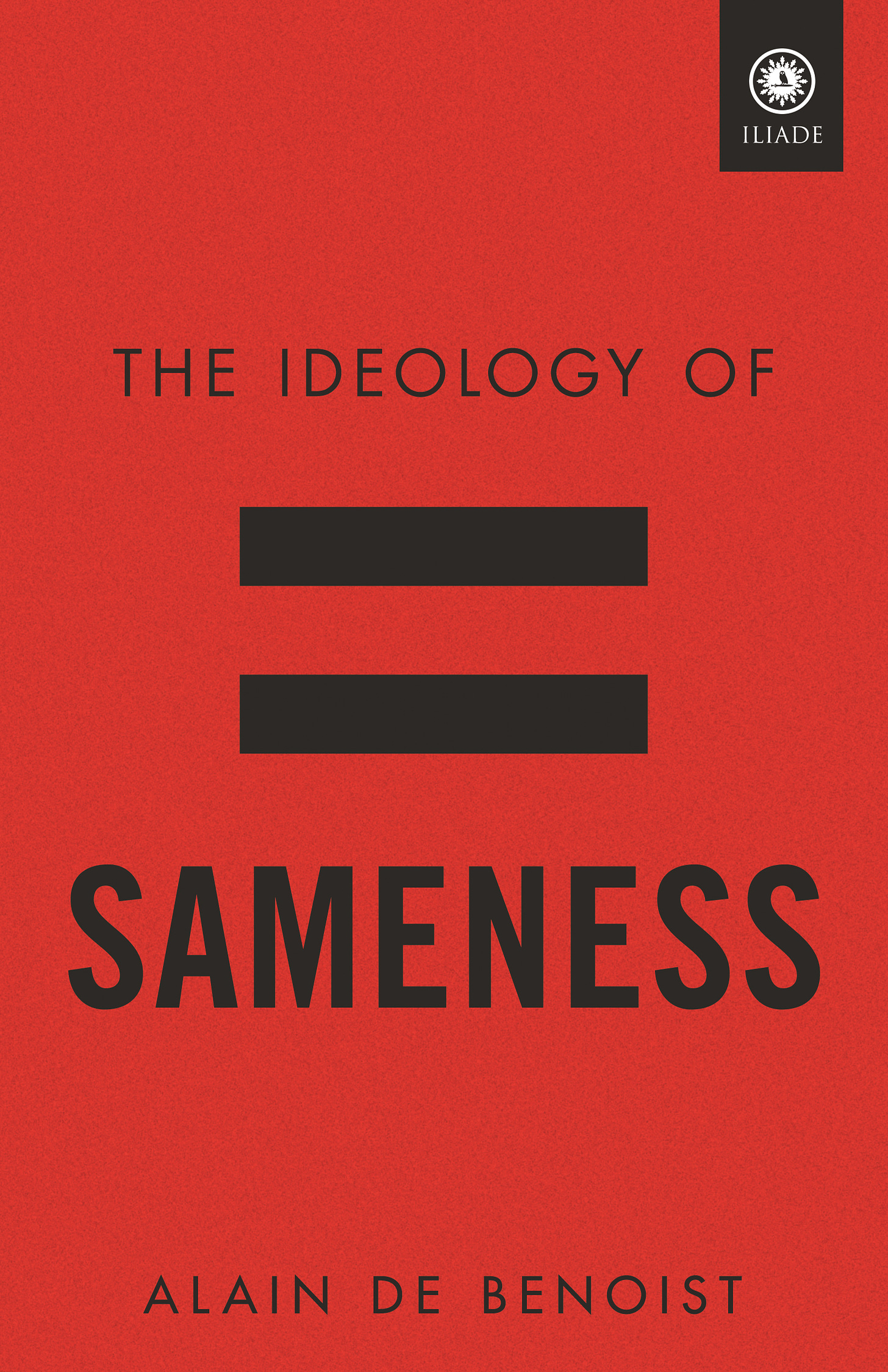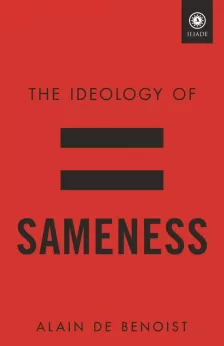Alain de Benoist’s The Ideology of Sameness offers a thought-provoking critique of modern egalitarianism and universalism, making a compelling case for the importance of diversity and particularism in human societies. In this slim but dense volume, de Benoist brings his considerable intellectual prowess to bear on what he sees as one of the defining ideological conflicts of our time — the tension between homogenization and differentiation.
De Benoist begins by tracing the historical development of what he terms the “ideology of sameness” — the belief that all humans are fundamentally identical and interchangeable, and that differences between individuals and cultures are superficial and unimportant. He argues that this ideology has deep roots in Western thought, from Christian universalism to Enlightenment rationalism to modern liberal individualism.
While acknowledging the noble intentions behind much universalist thinking, de Benoist contends that, taken to extremes, the “ideology of sameness” leads to a flattening of human diversity and a loss of the particular identities and communities that give life richness and meaning. He makes a persuasive case that true equality does not mean erasing all distinctions, but rather respecting differences while affirming a common humanity.
One of the book’s strengths is de Benoist’s nuanced exploration of the concept of equality. He argues that mathematical equality is not the same as proportional equality or equity, and that blindly pursuing an abstract notion of equality often leads to injustice in practice. Instead, he advocates for an understanding of equality rooted in reciprocity and mutual recognition between different but equally valued individuals and groups.
De Benoist is at his most compelling when discussing the importance of community and belonging for human flourishing. Drawing on thinkers like Ferdinand Tönnies, he contrasts the organic solidarity of true communities with the atomized individualism of modern liberal societies. While not romanticizing pre-modern social forms, he makes a strong argument that we have lost something vital in the transition to mass society, and that reviving a sense of genuine community is essential for addressing many contemporary social ills.
The author’s critique of liberal individualism is incisive and timely. He argues that the liberal conception of the individual as an abstract rights-bearer detached from all social context is both philosophically incoherent and practically harmful. Human beings are fundamentally social and shaped by their cultural context — we can only truly understand ourselves and flourish through our relationships and communities. De Benoist contends that liberal theory’s neglect of this basic fact leads to an impoverished view of human nature and society.
De Benoist makes a thoughtful case for the value of distinct cultures and identities. He argues that true universality can only be reached through particularity — that we access the universal human experience precisely through our specific cultural inheritances and communities. This strikes me as a more mature and nuanced form of identity politics, one that affirms the equal dignity of all peoples while preserving cultural diversity.
The book’s discussion of federalism and subsidiarity as alternatives to centralized nation-states is particularly interesting. De Benoist advocates for a model of nested, overlapping communities and identities as a way to reconcile unity and diversity. This vision of “unity in diversity” offers a compelling alternative to both rigid nationalism and rootless cosmopolitanism.
The Ideology of Sameness is an important and timely contribution to debates around identity, community, and diversity in the 21st century. At a time when many societies are struggling with questions of immigration, multiculturalism, and national identity, de Benoist offers a philosophically rich framework for thinking through these issues.
Whether one ultimately agrees with all of de Benoist’s conclusions or not, his call for a renewed appreciation of human diversity and rootedness is deeply compelling. In an era of globalization and mass culture, his defense of particular identities and communities as the foundation of a truly universal humanism feels vital and necessary.
For anyone interested in questions of culture, identity, and community in the modern world, The Ideology of Sameness is essential reading. De Benoist has produced a work of genuine insight and originality that deserves wide engagement and discussion.
Purchase The Ideology of Sameness here.









